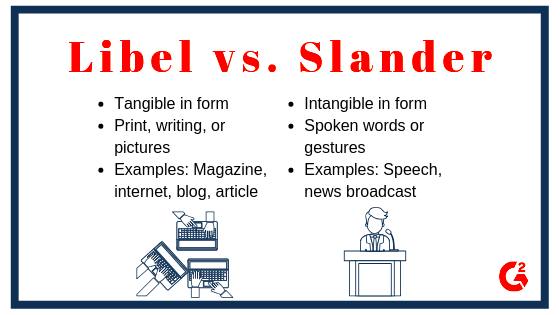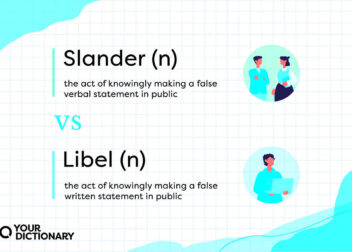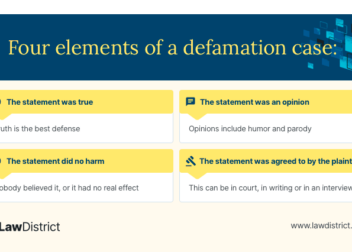Colorado’s Liability Laws for Defamation and Slander
Defamation and slander are important legal concepts in Colorado that protect individuals from false statements that can harm their reputation. These laws help ensure that people can express themselves while also holding others accountable for damaging untruths. Understanding these laws is crucial for anyone who wants to navigate the legal landscape of communication in the state.
Understanding Defamation in Colorado

Defamation in Colorado refers to false statements that damage a person’s reputation. The law recognizes two main forms of defamation:
- Libel: This is defamation in written or published form, such as articles, blogs, or social media posts.
- Slander: This involves spoken statements that harm someone’s reputation.
To establish a defamation claim, the plaintiff must prove several elements:
- The statement was false.
- The statement was made about the plaintiff.
- The statement was published or communicated to a third party.
- The statement caused harm to the plaintiff’s reputation.
It’s essential to understand that truth is a complete defense against defamation claims in Colorado. If the statement in question can be proven true, the claim is likely to fail.
Types of Defamation in Colorado

In Colorado, defamation can be categorized into two main types: libel and slander. Each has its characteristics and legal implications:
| Type of Defamation | Description | Examples |
|---|---|---|
| Libel | Defamation in written form that can be preserved and seen by others. | Newspaper articles, online blogs, social media posts. |
| Slander | Defamation through spoken words that can only be heard by others. | Verbal statements made in conversations or speeches. |
Each type of defamation requires different evidence and considerations, making it vital for anyone facing such accusations to understand their specific case. Consulting with a legal expert is always recommended to navigate these complex issues.
Elements Required to Prove Defamation
Proving defamation in Colorado involves demonstrating specific legal elements. Each of these elements must be clearly established for a claim to succeed. Here’s a closer look at the key elements:
- False Statement: The plaintiff must prove that the statement in question is false. Truth is a complete defense against defamation.
- Statement About the Plaintiff: The false statement must be about the plaintiff specifically. This means it identifies them or is made in a way that it clearly refers to them.
- Publication: The statement must be communicated to a third party. This can be in person, through written media, or via digital platforms.
- Harm to Reputation: The plaintiff must show that the statement caused harm to their reputation. This could include loss of business, social standing, or emotional distress.
- Fault: Depending on the plaintiff’s status (public figure or private individual), the standard of fault may vary. Public figures must prove “actual malice,” while private individuals may need only to show negligence.
Each of these elements plays a crucial role in the outcome of a defamation case. Understanding them helps both plaintiffs and defendants navigate the complexities of defamation laws in Colorado.
Differences Between Defamation and Slander
While defamation and slander both refer to harmful false statements, they are distinct in terms of their form and legal implications. Let’s break down the differences:
| Aspect | Defamation | Slander |
|---|---|---|
| Definition | A false statement that harms a person’s reputation. | A form of defamation that is spoken. |
| Medium | Written, published, or broadcasted statements. | Verbal statements made in conversation. |
| Proof of Harm | Harm may be assumed in some cases (e.g., statements about criminal behavior). | Typically requires proof of specific harm, like lost job opportunities. |
| Duration | Can have lasting effects due to its permanence. | Effects may be temporary unless widely disseminated. |
Understanding these differences is crucial for individuals involved in defamation disputes. Each type has its own legal standards and consequences, making it important to handle cases carefully.
Defenses Against Defamation Claims
When facing a defamation claim, several defenses can help protect an individual or entity. Understanding these defenses can be crucial for anyone involved in a defamation lawsuit. Here are the most common defenses:
- Truth: If the statement is true, it serves as an absolute defense against defamation claims. The burden of proof lies with the defendant to demonstrate the statement’s truth.
- Opinion: Statements that are clearly opinions rather than factual claims are typically not considered defamatory. For example, saying, “I think this person is dishonest” is often protected.
- Privileged Statements: Certain statements made in specific contexts (e.g., court proceedings, legislative debates) may be protected by privilege, shielding the speaker from liability.
- Consent: If the plaintiff consented to the statement being made, they cannot later claim defamation.
- Fair Comment: This defense applies when the statement is a fair comment on a matter of public interest, allowing for criticism without liability.
Knowing these defenses is vital for anyone accused of defamation. A solid understanding of the law and a competent legal strategy can significantly impact the outcome of a defamation case.
Impact of Public Figures on Defamation Cases
Defamation cases involving public figures differ significantly from those involving private individuals. Because public figures have more access to media and public platforms, they must meet a higher burden of proof when pursuing a defamation claim. This is rooted in the principle that a free and open discussion of public figures is vital in a democratic society.
To win a defamation case, public figures must prove:
- Actual Malice: This means showing that the false statement was made with knowledge of its falsity or with reckless disregard for the truth.
- Negligence Standard: For private individuals, the standard is lower, requiring only that the defendant acted negligently.
These stringent requirements exist to balance the need for accountability with the right to free speech. As a result, many defamation claims from public figures can be challenging to prove. High-profile individuals often face criticism, and not all harsh words rise to the level of defamation.
Overall, the impact of being a public figure means navigating more complex legal terrain, which can deter some from pursuing claims unless they have substantial evidence to support their case.
Legal Consequences of Defamation in Colorado
Defamation can have serious legal consequences in Colorado, both for the person making the false statement and for those who suffer harm as a result. Here’s a breakdown of the potential outcomes of a successful defamation claim:
| Consequence | Description |
|---|---|
| Compensatory Damages | These are intended to compensate the victim for actual losses, including lost income, emotional distress, and damage to reputation. |
| Punitive Damages | If the defendant acted with actual malice, the court might award punitive damages to punish the defendant and deter future misconduct. |
| Injunctions | A court may issue an injunction to prevent the defendant from continuing to make defamatory statements. |
| Legal Costs | The losing party may be required to pay the legal fees of the prevailing party. |
Being accused of defamation can lead to substantial financial and reputational harm for the defendant as well. Given the potential consequences, it’s crucial for individuals to consider their words carefully, especially in a public forum.
FAQs about Defamation and Slander Laws
When it comes to defamation and slander, many people have questions about how these laws work in Colorado. Here are some frequently asked questions:
- What is the difference between defamation and slander? Defamation is a general term for false statements that harm someone’s reputation, while slander specifically refers to spoken defamatory statements.
- Can I sue for defamation if the statement is true? No, truth is a complete defense against defamation claims. If the statement can be proven true, it cannot be considered defamatory.
- How long do I have to file a defamation lawsuit in Colorado? In Colorado, the statute of limitations for defamation claims is generally one year from the date of the defamatory statement.
- Do I need to be a public figure to file a defamation claim? No, anyone can file a defamation claim, but public figures face a higher burden of proof in such cases.
- What should I do if I’m accused of defamation? It’s essential to seek legal advice promptly. An attorney can help you understand your options and formulate a defense.
Understanding these frequently asked questions can provide clarity for those navigating the complexities of defamation and slander laws in Colorado.
Conclusion on Understanding Liability for Defamation
Understanding liability for defamation is crucial for anyone engaged in public discourse, whether as a private individual or a public figure. Defamation laws in Colorado aim to balance the right to free speech with the need to protect individuals from false statements that can harm their reputation. Knowing the elements required to prove a defamation claim, the differences between defamation types, and the available defenses can significantly impact the outcome of legal disputes. Public figures face stricter scrutiny and higher burdens of proof, while private individuals enjoy more straightforward legal protections. In light of these complexities, it is always advisable to consult with a legal professional if you believe you may be involved in a defamation case, whether as the claimant or the defendant. A solid understanding of your rights and responsibilities under the law is vital to navigate this challenging landscape.


